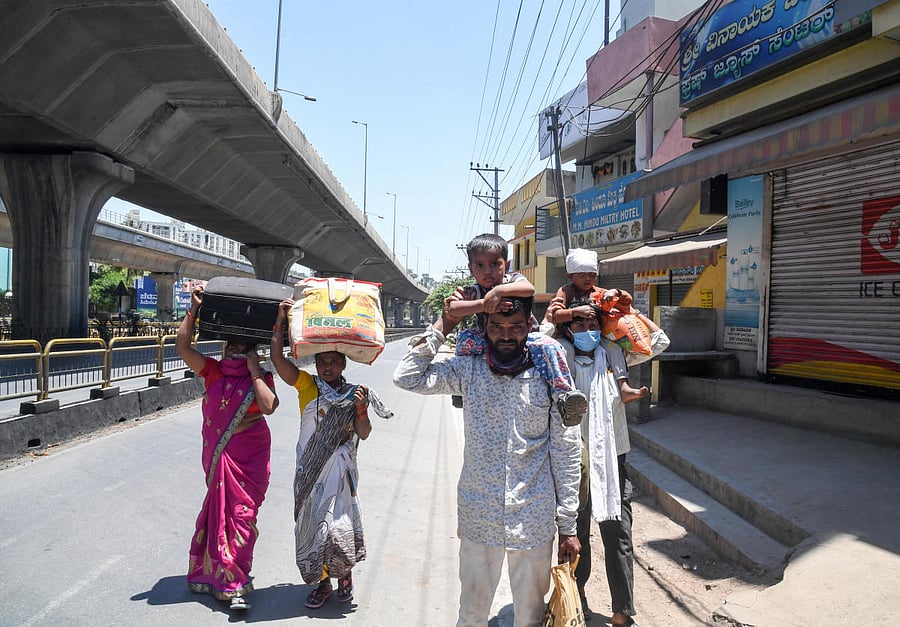
When Covid-19 started its march across the world in February and March of this year, it was immediately obvious that this would be a two-front battle. First, the spread of the aggressive virus had to be checked lest it decimated the most vulnerable of our people. Secondly, we had to minimise the economic shock that would inevitably result from social and physical distancing measures that were required to fight the virus.
In India, Prime Minister Narendra Modi, whose signature style is effecting drastic changes, announced a crushing lockdown giving people a window of just four hours to get their affairs in order. This was accompanied by multiple statements from various quarters of government that were plainly unscientific.
Similar scenes were seen in America too where President Donald Trump continues to deny the pandemic and defy health experts, and in the UK, a number of policy flip flops have reduced the pandemic response to a partisan political issue. No surprise then that these countries that vacillated in their approach to the pandemic have been amongst the worst hit. It is also not coincidental that the heads of government in these countries pay little or no attention to the rigours of governance.
Coming back to India, what unfolded was not merely the economic shock that had been predicted. The shoddy decision-making resulted in a humanitarian tragedy involving migrant workers stranded in cities without any support from the government or their employers.
The only way to make good of the lockdown was to ensure that our public health infrastructure was ramped up fast. A ‘test and isolate’ protocol was required to ensure that hotspots are identified and local containment measures put in place. Nearly 80 lakh confirmed cases later, we know that none of this was done.
The lockdown was enforced first through lathi-wielding policemen, once again reinforcing that the government’s first recourse in the face of a behavioural challenge is the use of brute coercive force. In truth, this is not enforcement, this is merely a reflection of poor capacity.
Next, much of the messaging around the pandemic emanating from the Prime Minister himself was self-congratulatory and simply bereft of substance – something that continues to this day. Following a tested political communication strategy of grand announcements may have insulated the Prime Minister from criticism, but it did little to provide any confidence to the people that they could trust the government.
The pandemic is just the latest instance in a long history of events that has challenged our implementation capacity. Our governments are under constant pressure to improve the quality of service delivery in a wide range of sectors. Where the government continues as the primary provider, the demands on its institutional capacity and on the quality and number of frontline workers is high.
These resource constraints are real as over-burdened and under-resourced bureaucrats are unable to carry out simple daily tasks. The local education officer, responsible for monitoring schools on his beat, is unable to do so simply because he has no fuel for his motor bike. The village health worker (or ASHA) is responsible for a wide range of tasks starting from collection and recording of administrative data to nutrition to ante-natal and post-natal care.
It is anybody’s guess how a government that is short of human resources – in both quantity and quality – is supposed to implement policies effectively. The Financial Times reports that India has only one government doctor for every 10,189 people (about 10 times worse than the World Health Organisation’s recommended ratio), and needs an additional 1.9 crore health workers in its clinics and hospitals. India’s police forces are about 10 lakh personnel short of the sanctioned strength.
These problems cannot be fixed overnight, and certainly not by a government that has focused its energies on consolidating power through communal polarisation. This is also the reason the government believes that people must be kept distracted from the real issues of the day. With the limited administrative capability devoted to this kind of obfuscation, when the government claims that it does not have data on migrants who took to the roads or on the numbers of jobs lost and enterprises destroyed, there is little surprise.
The pandemic has once again exposed our core weaknesses – poor administrative capacity means that any such crisis will turn out to be insurmountable for us as a country. The economic downturn over the past two years, accelerated in 2020, should have provoked serious introspection on economic policy and Centre-state relationship. Instead, this too has been turned into an opportunity to ram through poor legislation and protectionist economic policy.
It is important to take a moment though and ask if the government really cares about all this. As the Covid-19 crisis has unfolded, the government has kept busy stirring the communal pot as well as throwing at people, one distraction tactic after another. As we stay engrossed in inconsequential Bollywood gossip, we are becoming poorer as a nation, and both brains and capital are looking for exit options. The foreign investment that we supposedly are seeking will not be attracted to a land where ‘rule of law’ does not exist and where crony capitalism rules the roost.
The ruling establishment has continued its war against students, activists, NGOs and professional expertise in general. It sees autonomous institutions and professional bureaucracy as a hindrance to its quest for complete political dominance, and is too busy to take notice of this crisis. Perhaps these questions of governance and development are meaningless, as we are currently striding along towards the goal of becoming a Hindu rashtra, so what if we are turned into an impoverished wasteland in the process?
(The writer works on governance projects in South Asia and East Africa)